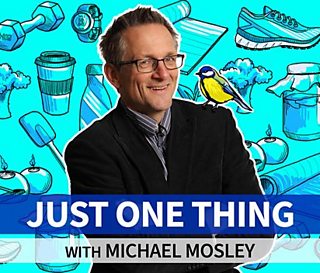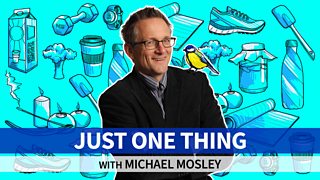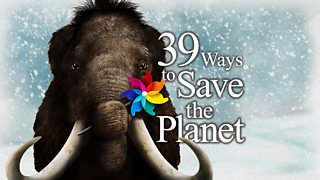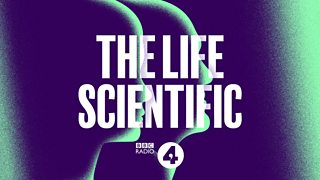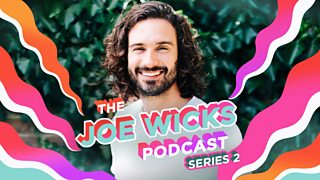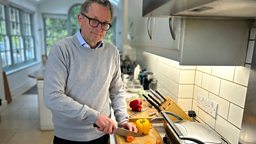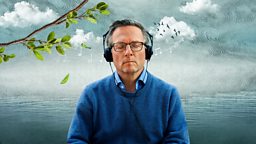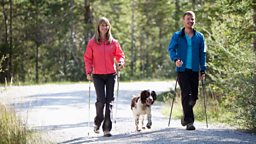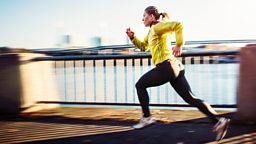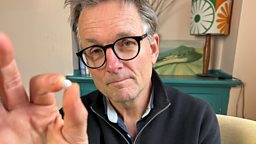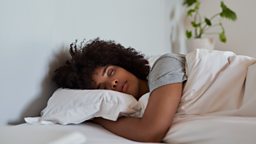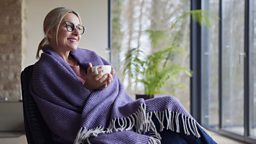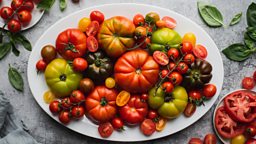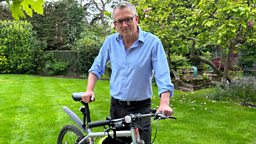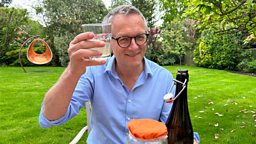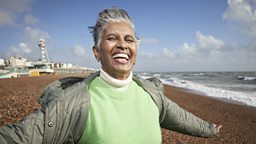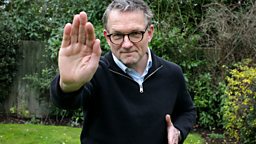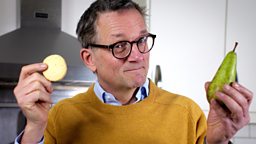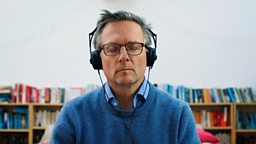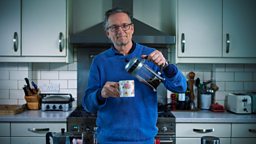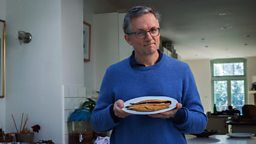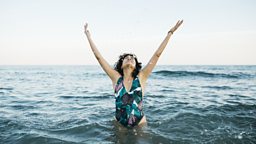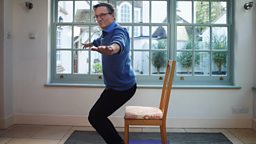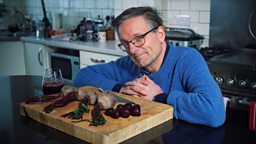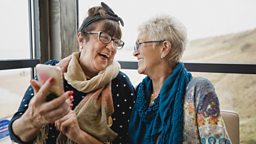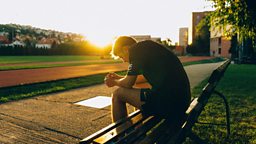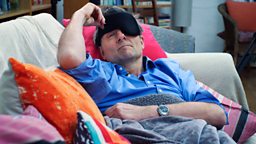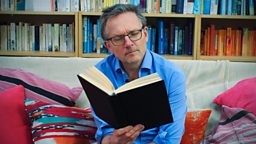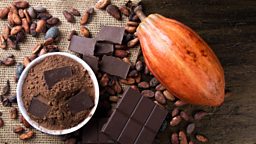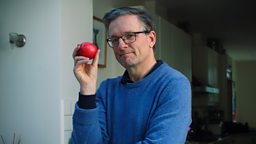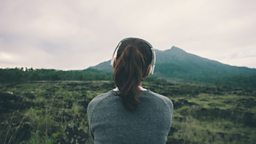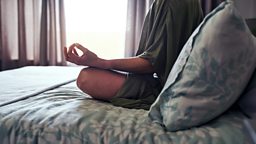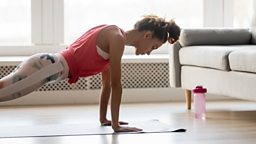Why you should be catching some rays
For years we’ve been told that going out in strong sunshine without sunscreen is dangerous. But the truth is, our bodies need it – especially in the northern hemisphere.
Sunlight can improve your mood, lower your blood pressure, strengthen your bones, muscles, and even your immune system.
In the first episode of the new series of his podcast, Just One Thing, Michael Mosley investigates where, when and how much time you can spend in the sun safely – and how much skin you should bare!
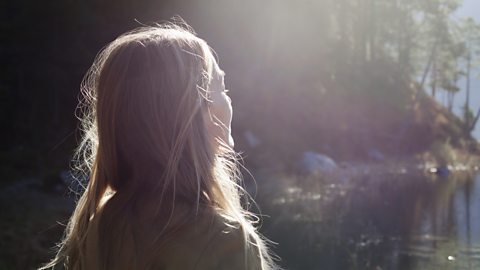
How sunshine can make you happier
Michael Mosley explains the mental and physical benefits of vitamin D.
The power of the sun

One study found that people had higher levels of serotonin in their blood on bright days.
Sitting outside, soaking up the sun and feeling the warmth on your skin can do a wealth of good for your physical and mental health. Critically, without direct sunlight, your body can’t make vitamin D, a crucial chemical which is important for your bones, your muscles and your immune system. And now is the time to get out and top up your vitamin D levels. Because in the UK the sun’s rays are only strong enough for you to make vitamin D from April to September. So you need to boost your levels in the summer months. Like hibernating creatures, we store the vitamin D we’ve accrued over summer in our fat reserves to keep us going over the winter!
Many of us have low levels of vitamin D over winter and this has been linked to a range of diseases, including dementia, autoimmune diseases and diabetes. So to keep healthy we really need to get out there and boost our levels over the summer. But vitamin D isn’t the only benefit of sunshine...
Improve your mood
We all know sunshine feels great – that’s because exposure to sunshine boosts your mood by increasing your brain’s release of a hormone called serotonin, which also helps you feel calm and focused.
One study found that people had higher levels of serotonin in their blood on bright days compared to overcast or cloudy ones. They also found that the rate of serotonin production in the brain was directly related to the duration of bright sunlight, regardless of the season or outside temperature. On top of this, there is some research to suggest that direct sunlight can trigger your skin cells to produce endorphins, which also make you feel good!
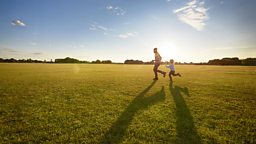
Lower your blood pressure
Sunlight has also been found to directly lower blood pressure. Scientists from Edinburgh University did an experiment showing that if you expose your arm to just 20 minutes of sunlight, that is enough to boost production of nitric oxide in your skin - which in turn causes your blood vessels to expand, bringing your blood pressure down.
Get stronger
Vitamin D is vital for bone health, no matter your age, and it could even make you stronger. A recent study found taking vitamin D improved athletes’ muscle strength, possibly by stimulating muscle cell growth. There is also evidence that it can help protect you from respiratory tract infections and boost your immune system. So there are plenty of reasons to make sure you get enough.
Sunlight is the best way to get vitamin D
It’s true that you can get some vitamin D from food, but it’s very difficult to get enough from diet alone. The best food sources are fatty fish; salmon, mackerel and sardines. If you’re vegetarian, there is a little in egg yolk and mushrooms, but eating enough to get all the vitamin D you need would be tough. Luckily, it is far easier to get a daily dose from the great outdoors. Once the sunlight hits your skin, your body is able to absorb it and convert it into this powerful nutrient.
How much is enough?
The amount of sun you need to produce the optimum amount of vitamin D will be personal to you and depend on your skin type, where you live and how sensitive you are. The most important thing is not to burn.
Darker skins have more of a pigment called melanin which acts like a natural sunscreen, absorbing radiation and protecting skin from damage. This protection ultimately prevents vitamin D from being produced as easily.

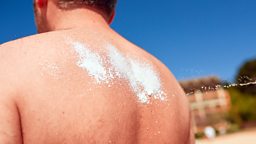
Bare some skin
You may think that getting the sun on your face is enough but to really make the most of it, you should be exposing your lower arms and legs as well. It’s worth getting outside even if it’s overcast, as you can still get some UV through light cloud.
You actually get more bang for your buck in the middle of the day – that’s when you make the most vitamin D for least skin cancer risk.Prof Ann Webb
It may sound counterintuitive to go out in the middle of the day, when the sun is strongest, but a lunchtime walk might be the best way to get your daily dose. “You actually get more bang for your buck in the middle of the day – that’s when you make the most vitamin D for least skin cancer risk”, says Prof Ann Webb from the University of Manchester. This does only apply to the UK rather than abroad where the sun is stronger.
If you’re going out for longer and may risk burning, take care to protect your skin. Make sure to cover up before getting burnt or put on some sunscreen – the NHS recommends it should be at least SPF30.
Little and often
Little and often is the best approach to topping up on sunshine. You may be tempted to soak up all your sunshine in one day, but most vitamin D is made in that early part of being outside. And minimising long exposure times is also the best way to avoid burning.
Take care though if you have sensitive skin or if you’re taking any medication that might make you more sensitive. If you’re using any skincare products that contain retinol or other strong exfoliants, you should be slapping on sunscreen before you venture outside – these products can affect your sun sensitivity.
For some people, it may be a struggle to spend enough time outside or bare enough skin. During the winter months, many choose to take a vitamin D supplement. It doesn’t take much; 10 micrograms or 400 international units a day are an effective way to enjoy the wide-ranging benefits of this wonderful vitamin.
To learn more, listen to Just One Thing - with Michael Mosley: Get Some Sun
More from Radio 4
-
![]()
Just One Thing - with Michael Mosley: Get Some Sun
How sunbathing can improve your heart, mood and immune system. With Mehreen Baig.
-
![]()
39 Ways to Save the Planet
Tom Heap and Dr Tamsin Edwards uncover fresh ways to save the planet from climate change.
-
![]()
The Life Scientific
Professor Jim Al-Khalili talks to leading scientists about their life and work.
-
![]()
The Joe Wicks Podcast
Fitness coach Joe Wicks asks some of his favourite people their secrets to health and happiness.
